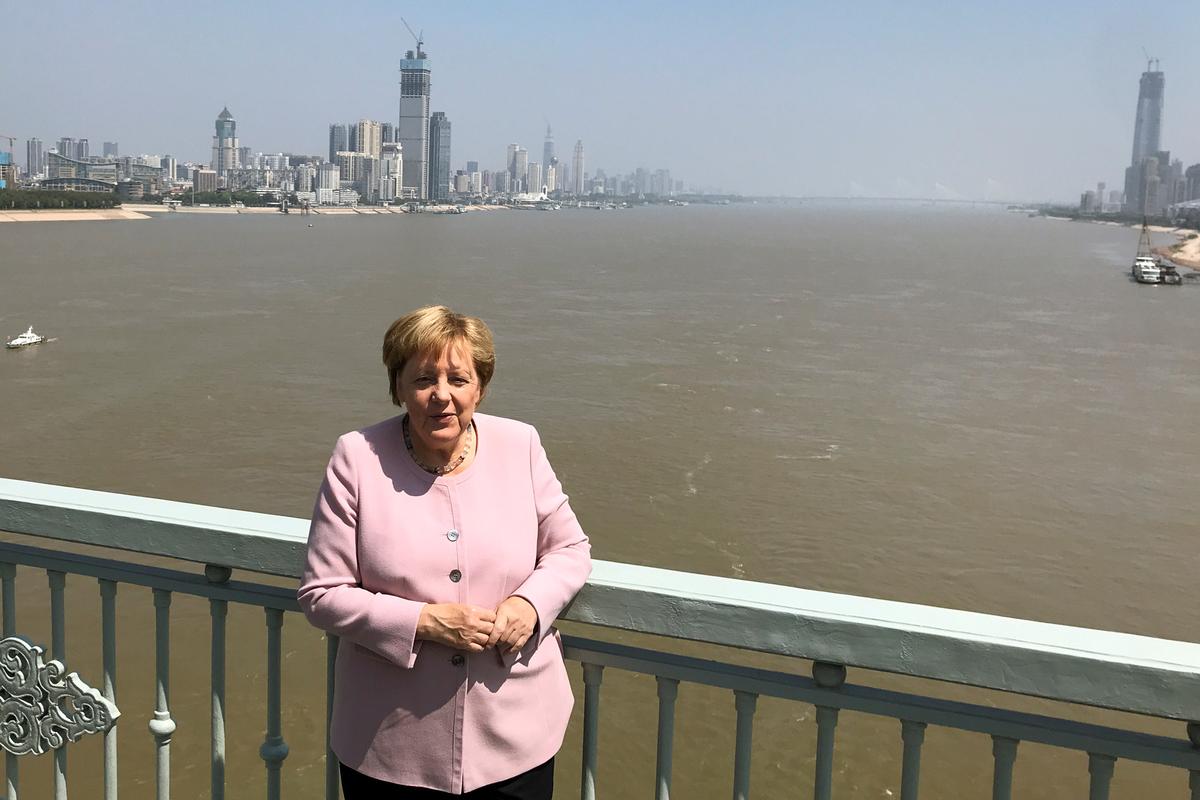BERLIN (Reuters) – Travelling in convoy through the Chinese city of Wuhan last September, Angela Merkel called a halt. As her party crossed a bridge over the Yangtze river, the German Chancellor wanted to hear about a grand gesture by revolutionary leader Mao Zedong.
FILE PHOTO: German Chancellor Angela Merkel poses for pictures on a bridge crossing the Yangtze River in Wuhan, China September 7, 2019. REUTERS/Andreas Rinke
She posed for a picture on the bridge over the river where, in 1966, Mao joined an annual swim down the river in a symbolic demonstration of his vigour and leadership. It was only a quick photo opportunity, but Merkel and her delegation were visiting what was to become ground zero of a pandemic that has killed more than 400,000 worldwide.
That Wuhan visit helped shape Merkel’s response to COVID-19, three people close to the chancellor told Reuters.
To many in the West, Wuhan is a remote place, renowned for an open-air market where the new coronavirus may have crossed into humans. Merkel saw at first hand a major thoroughfare and busy hub of China’s industrial power. If the disease was serious enough to force a metropolis of 11 million people to quarantine itself and come to a complete stop, people close to her said, she saw it must be serious.
Merkel – unlike leaders including British Prime Minister Boris Johnson and U.S. President Donald Trump – supported a quick lockdown and widespread testing. These are two elements that have been widely credited by epidemiologists for keeping Germany’s reported fatalities lower than many countries, especially outside Asia. Germany has reported almost 9,000 COVID-19 deaths, versus more than 110,000 in the United States and over 40,000 in the United Kingdom, according to a Reuters tally. On a per capita basis, the German toll is one-third that of America and one-sixth that of the UK.
Her response boosted her image: Around 66% of Americans think Germany has done a good job of tackling the virus, according to a survey from late April and early May by the Pew Research Center. At home, support for her conservative bloc has risen from 26% in early March to 40% now, surveys by pollster Forsa show. The ecologist Greens have been the main casualty. The nationalist Alternative for Germany (AfD) has also slipped back, to 8%.
Merkel declined to comment for this story. But accounts from business leaders, regional heads and those close to the chancellor give a rare inside view of how she handled the pandemic. It’s a story that shows how, in Germany as in the United States and elsewhere, COVID-19 is exposing deep tensions between states’ nationalist and collaborative styles of leadership.
Trump, after initially praising China’s reactions, changed tack as the pandemic progressed and said he would cut ties with the World Health Organization (WHO), which he said was unduly pressured by Beijing.
Germany also briefly turned inwards, banning exports of medical supplies, but then reversed that. Merkel, while agreeing the WHO needs to be reformed, spoke out to defend international alliances which are working to develop a vaccine.
“The difference between these approaches is stark,” said Thomas Kleine-Brockh

